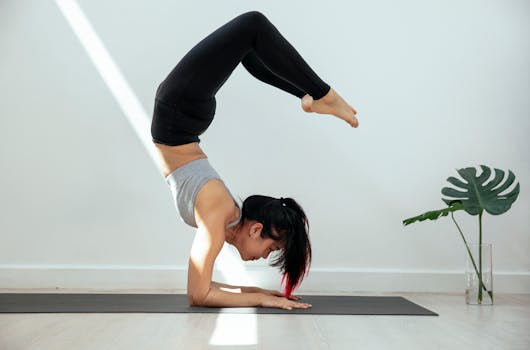Boost Your Mood: How Exercise Can Help Manage Anxiety and Depression
Takeaways: Exercise is a powerful tool for boosting mood and managing anxiety and depression. It releases endorphins, improves sleep, and can create a sense of achievement. Even small amounts of physical activity can make a big difference, so find something you enjoy and get moving!
Hey there, lovely readers! Today, I want to talk about something that’s been a game-changer for me in my journey with anxiety and depression: exercise. Now, before you roll your eyes and think, “Ugh, not another fitness article,” hear me out! I’m not here to preach about hitting the gym or running marathons. I’m all about finding joy in movement and how it can work wonders for our mental health. So, grab your sneakers, and let’s dive in!
Why Exercise Matters for Mental Health
First off, let’s get a little scientific! When we exercise, our bodies produce chemicals called endorphins. These little guys are often referred to as the “feel-good” hormones because they can create feelings of happiness and euphoria. Ever felt that post-workout high? Yep, that’s the endorphins working their magic!
Research has shown that regular physical activity can help reduce symptoms of anxiety and depression. It’s not just about burning calories; it’s about fostering a sense of well-being. According to a study published in the American Journal of Preventive Medicine, people who engage in regular exercise report lower levels of anxiety and depression compared to those who don’t.
I remember when I first started incorporating exercise into my routine. I was feeling overwhelmed and anxious, often struggling to get out of bed. One day, I decided to take a short walk around my neighborhood. Just a simple stroll! And you know what? I felt a little lighter afterward. I realized that movement, even in small doses, could lift my spirits.
Finding Your Groove: Types of Exercise to Consider
Now that we know exercise is beneficial, let’s talk about how to get started. The key is to find something you enjoy. Here are some options that might resonate with you:
- Walking: Seriously, walking is underrated. Whether it’s a brisk walk in the park or a leisurely stroll around your neighborhood, it’s an easy way to get moving.
- Dancing: Turn up your favorite tunes and dance like no one’s watching! It’s fun, liberating, and a fantastic workout.
- Yoga: Yoga combines physical movement with mindfulness, making it perfect for reducing anxiety. Plus, who doesn’t love a good downward dog?
- Team Sports: If you thrive in social situations, joining a local sports team or group can be a great way to exercise and meet new friends.
- Strength Training: Lifting weights can boost your confidence and help you feel stronger, both physically and mentally.
When I discovered yoga, it felt like a revelation. The combination of breathing, stretching, and mindfulness helped me manage my anxiety in ways I never expected. Plus, the community aspect of yoga classes made me feel connected and supported.
How to Make Exercise a Habit
Okay, so you’ve found something you enjoy. Now, how do you make it a regular part of your life? Here are some tips that worked for me:
- Set Realistic Goals: Start small! If you aim for a 10-minute walk a few times a week, that’s fantastic. Gradually increase your time as you feel comfortable.
- Schedule It: Treat your exercise time like an important appointment. Block out time in your calendar and stick to it!
- Buddy Up: Find a friend to join you! Having someone to share the journey with can make it more enjoyable and keep you accountable.
- Listen to Your Body: Some days, you might not feel like moving much, and that’s okay. Listen to your body and give yourself grace.
- Celebrate Your Progress: No matter how small, celebrate your achievements. Did you walk for 15 minutes? Awesome! Every step counts!
Remember, the goal here isn’t to become a fitness guru overnight. It’s about finding joy in movement and using it as a tool to manage your mental health. I still have days when my anxiety tries to creep back in, but I lean on my exercise routine to help me through.
FAQs

A: Aim for at least 150 minutes of moderate exercise per week, which can be broken down into smaller sessions. Even short bursts of activity can help!
Q: What if I don’t enjoy traditional exercise?
A: That’s totally okay! Find activities that feel fun to you, whether it’s gardening, dancing, or playing with your kids. The key is to stay active in a way that feels good.
Q: Can exercise replace therapy for anxiety and depression?
A: While exercise is a great tool for managing symptoms, it shouldn’t replace professional help. It can be a wonderful complement to therapy or medication.
Q: How do I stay motivated to keep exercising?
A: Find what you love, set achievable goals, and remember to celebrate your progress. Having a workout buddy can also keep you motivated!
So, are you ready to boost your mood with some movement? Let’s get moving and embrace the power of exercise for our mental health!




